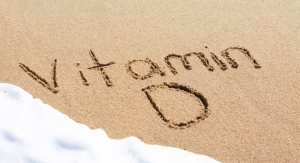07.06.16
Milk thistle supplements naturally contain silymarin compounds, which may be helpful in certain liver diseases as well as type 2 diabetes. However, recent tests from White Plains, NY-based ConsumerLab.com revealed that eight of 10 milk thistle supplements contained much less silymarin than claimed or expected.
Most milk thistle supplements claim that 80% of their extracts are silymarin—similar to products used in many clinical trials. But ConsumerLab.com found that among six milk thistle extract supplements claiming to provide 80% silymarin, amounts actually ranged between just 51.7% to 60.4% silymarin. Two other milk thistle supplements that were tested did not list their amount of silymarin but failed to meet minimum standards. The supplements were also tested for contamination with the heavy metals lead, cadmium and arsenic.
In its new review, ConsumerLab.com explains that the high failure rate may be due to milk thistle that is being certified by manufacturers using methods that are not specific to silymarin and can inflate numbers—unlike the validated USP method employed by ConsumerLab.com.
Most milk thistle supplements claim that 80% of their extracts are silymarin—similar to products used in many clinical trials. But ConsumerLab.com found that among six milk thistle extract supplements claiming to provide 80% silymarin, amounts actually ranged between just 51.7% to 60.4% silymarin. Two other milk thistle supplements that were tested did not list their amount of silymarin but failed to meet minimum standards. The supplements were also tested for contamination with the heavy metals lead, cadmium and arsenic.
In its new review, ConsumerLab.com explains that the high failure rate may be due to milk thistle that is being certified by manufacturers using methods that are not specific to silymarin and can inflate numbers—unlike the validated USP method employed by ConsumerLab.com.















